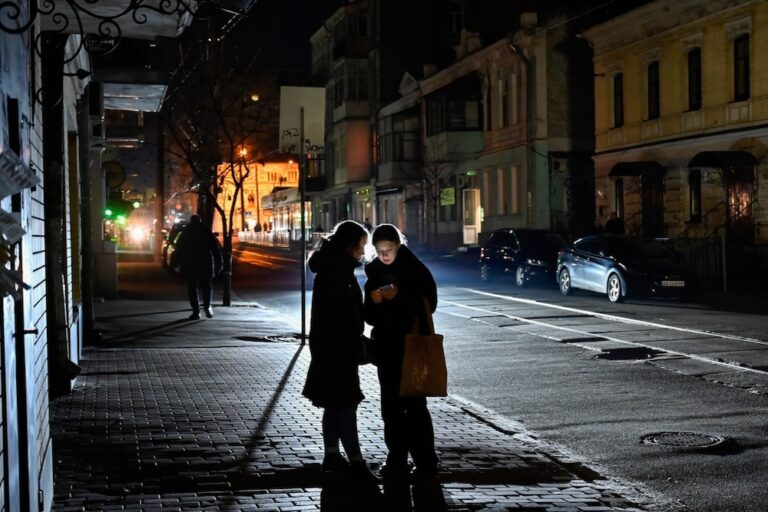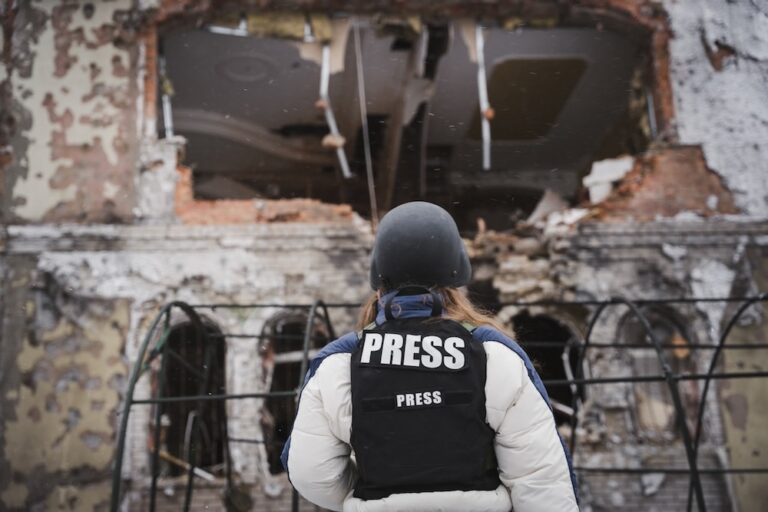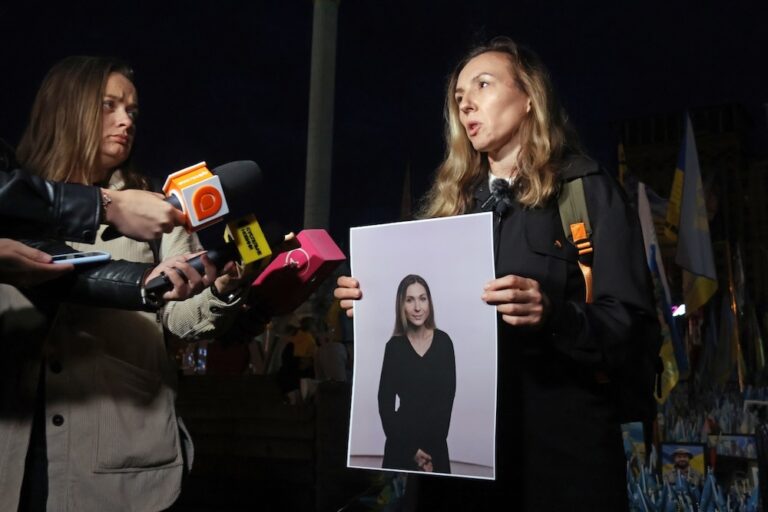(RSF/IFEX) – During an interview with Interfax on 25 January 2002, Deputy Prosecutor General Alexei Baganets announced that the Council of Europe had decided not to create an international commission of inquiry into journalist Georgiy Gongadze’s disappearance and murder, because such a commission would be contrary to Ukrainian law. The deputy prosecutor general’s statement is […]
(RSF/IFEX) – During an interview with Interfax on 25 January 2002, Deputy Prosecutor General Alexei Baganets announced that the Council of Europe had decided not to create an international commission of inquiry into journalist Georgiy Gongadze’s disappearance and murder, because such a commission would be contrary to Ukrainian law.
The deputy prosecutor general’s statement is false, according to RSF. The organisation regards his announcement as yet another ploy by the Ukrainian authorities to delay the identification of Gongadze’s murderers. Though Antanas Valeonis, chairman of the Council of Europe’s Committee of Ministers and Lithuanian foreign affairs minister, has acknowledged that Ukrainian law currently does not allow for the creation of a commission of inquiry, he has not said that such a commission would not be created in any event. In fact, three Ukrainian members of parliament are presently preparing a bill designed to create the legal framework that would enable foreign investigators to work in Ukraine. Moreover, on 24 January, Council of Europe Rapporteur for Ukraine Hanne Severinsen wrote to the Council of Europe’s Committee of Ministers asking that the process for the independent commission of inquiry’s creation be sped up.
RSF recalls that on 27 September 2001, the Council of Europe issued the recommendation that an international commission of inquiry be created. The Council of Europe noted that such a commission would have to be ratified by the Council of Europe’s Committee of Ministers in order to be efficient.
Furthermore, Baganets announced on 28 January that he would ask the German authorities to carry out a third expert evaluation of the body that was found in Tarachtcha. He did not specify the identity of the organisation that would perform the autopsy, nor did he indicate when the autopsy might take place.
RSF believes that even if a new autopsy could be useful, it will not serve as a substitute for a genuine investigation, carried out independently, of the origin of the journalist’s disappearance and murder.


